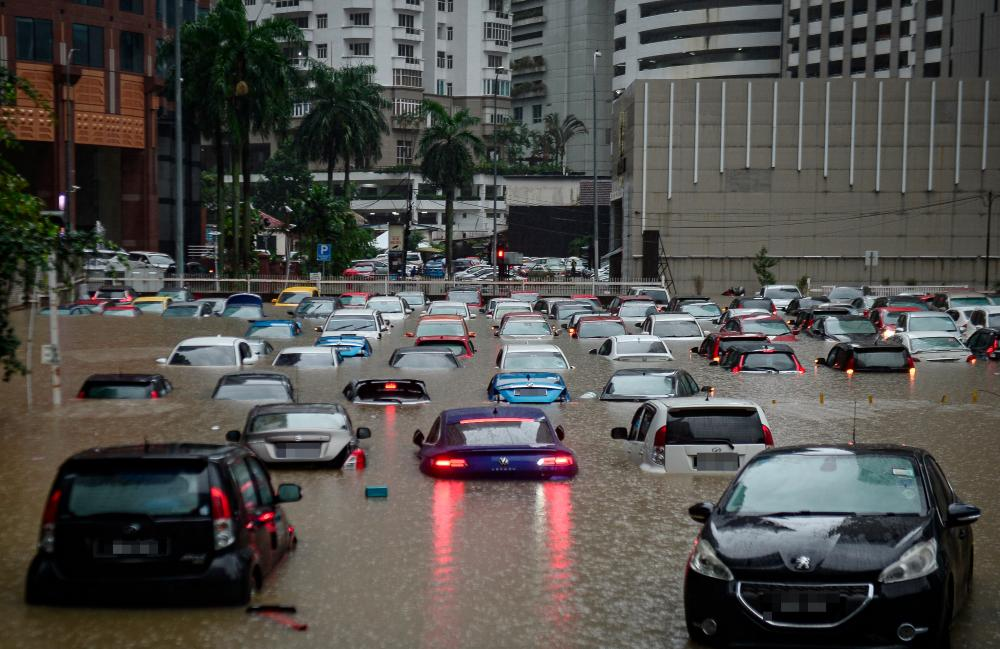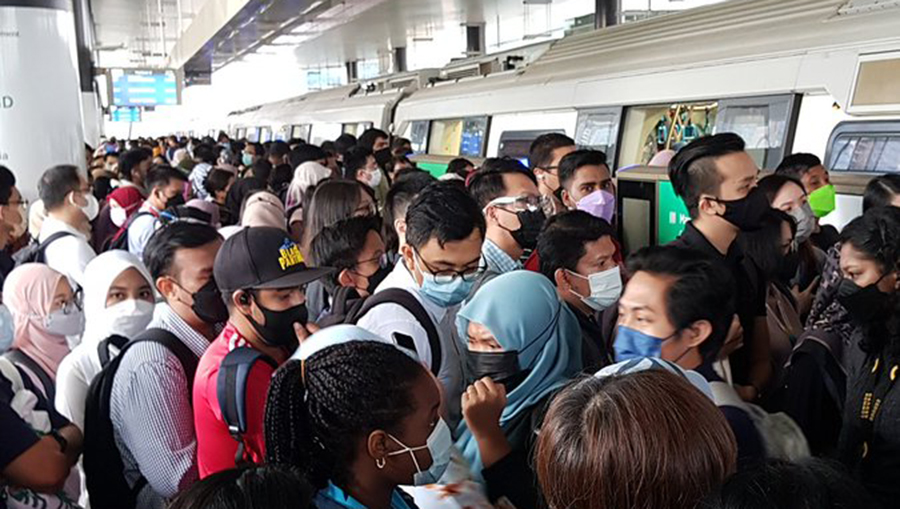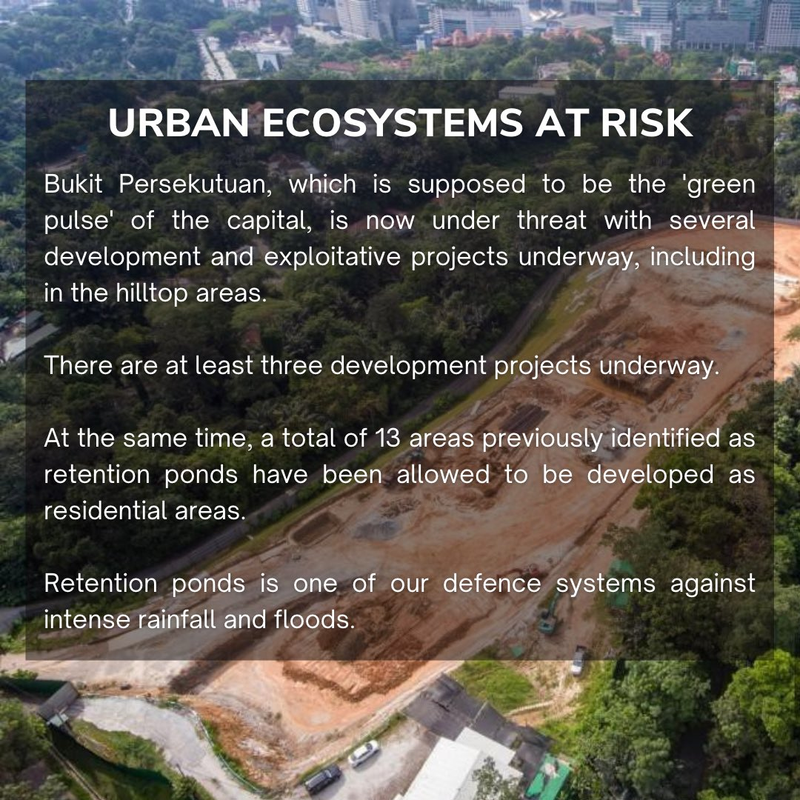"KL Isn't A Liveable City" – Environmental Advocate Shares Why Our City Planning Is Poor
Kolektif Iklim advocacy director Aidil Iman Aidid's tweets about six environmental and city planning problems faced by Kuala Lumpur have attracted a lot of netizens to agree with what he said.
An environmental advocate's tweets detailing six reasons why Kuala Lumpur is not a liveable city went viral recently
In a ten-image Twitter thread, Aidil Iman Aidid — citing the floods in the capital city on Wednesday, 26 May — as the first problem KL faces.
"The poor design, planning, and land use of our city drown its people in floods and trap them in traffic congestions. This needs to change," began the advocacy director of Kolektif Iklim, a youth-led environmental movement focused on the synergy between climate action and biodiversity protection.
"KL must be a safe, sustainable, and resilient city."
Aidil said it is the third time this year that the capital city of the country was flooded, on 7 March, 25 April, and 25 May.
Despite that, "no sense of urgency or a declaration of a climate emergency [has] been announced", read the caption of an image featuring vehicles inundated in a car park in KL.
Besides that, Aidil also shared that, based on traffic data, the traffic congestion in KL has gotten worse than pre-pandemic levels
"A study done by Boston Consulting Group (BCG) indicated that people living in KL spend about 53 minutes stuck in traffic jams every day," he said.
This comes after more employees begin returning to offices after work-from-home arrangements are slowly being phased out and students are also required to return to school.
The other dark cloud hanging over the city is its poor public transport system, contending that Malaysia, like other megacities in Southeast Asia, was designed for private vehicles.
"Many key decision makers still believe that road infrastructure is synonymous with economic success," Aidil, who is currently a dean's list student at the University of Malaya, pursuing International and Strategic Studies.
"This makes 'first-mile and last-mile' connectivity a major issue for commuters. At the same time, LRT disruptions and crowdedness are becoming frequent too."
The 'first-mile and last-mile' connectivity refers to the struggle commuters face while getting to a public transport stop from their starting location and getting to their destination after arriving at a public transport stop, as they either have to take a cab to get quick access to the public transport or have to walk a long distance.
The youth activist added that deforestation, poor facilities and designs of People Housing Project (PPR) flats, as well as the government's obsession with highways were the other problems plaguing the city
Speaking to SAYS, Aidil said the number one problem the authorities should act upon is floods
Citing a statement Kolektif Iklim issued on 26 April, he said the government should gazette flood retention ponds to prevent the encroachment of development projects, which often decreased the city's water-holding capacity, thus, leading to floods.
"Hence, legal protection for these retention ponds is vital for KL to cope with future scenarios of intense flooding," it read.
The statement that Aidil shared with SAYS also urges the government to create 'sponge cities' by building ecological infrastructure, such as constructed wetlands, as not only does it prevent floods, but it could also reduce the heat island effect in the cities.
Lastly, Kolektif Iklim demands the government declare a climate emergency, as countries, such as Singapore and Bangladesh, have already done so to protect the future of their nations.
At the time of writing, Aidil's Twitter thread on Wednesday has garnered over 7,600 retweets
Many netizens agreed with his comments, recounting all the flood, public transport, and traffic congestion problems they faced as KL city dwellers over the past few months.
You can find the Twitter thread below:





